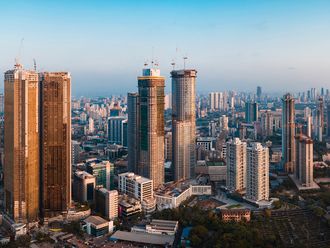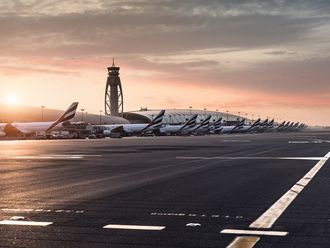
As the UAE continues to enhance its status as a global business hub, its arbitration landscape is also evolving to offer an increasingly attractive venue for resolving international disputes.
The Comprehensive Economic Partnership Agreement (CEPA) signed with India in 2022, allowing greater market access for Indian companies to the UAE and the wider region, is just one example of the business-friendly environment being fostered in the UAE.
In parallel, the region continues to develop its reputation for being a ‘safe seat’ for arbitration, with a variety of institutional choice, unified by its commitment to international best practice standards.
These developments make the UAE an increasingly attractive choice for Indian and other international businesses, whether for companies seeking a new hub to call home or agreeing upon a jurisdiction for the resolution of disputes.
Robust legal framework
The UAE is increasingly pro-arbitration and is widely regarded as a reliable arbitration-friendly jurisdiction. Its arbitration laws, aligned with global standards and the decisions of its courts, support this.
The Abu Dhabi Courts recently upheld the validity and enforceability of an arbitration agreement referring disputes to the DIFC-LCIA (Dubai International Financial Center- London Court of International Arbitration), despite the fact that the DIFC-LCIA had been abolished.
In a well-reasoned judgment, the Abu Dhabi Courts refused to accept the award debtor’s challenge that the arbitration agreement was invalid. Instead it preferred to uphold the arbitration agreement, concluding that neither the abolition of an arbitral institution nor the amendment of arbitration rules rendered an agreement null and void, or incapable of being performed.
This judgment will no doubt give peace of mind to businesses across the globe.
Homegrown arbitration centers
The UAE’s commitment to becoming a leading arbitration hub is evident in its robust legal framework, establishment of world-class centers and adherence to globally recognised arbitration rules.
The DIFC and Abu Dhabi Global Market (ADGM), both offshore common law jurisdictions, are prime examples of the country’s commitment to continuous improvement through legal evolution.
Both jurisdictions have progressive arbitration laws based on the UNCITRAL Model law. They also provide neutral, efficient forums for commercial disputes giving the parties confidence that awards will be readily enforceable under the international reciprocal enforcement treaties to which the UAE is a party.
The Dubai International Arbitration Centre (DIAC) stands out as one of the region’s largest alternative dispute resolution institutions. In 2022, DIAC had registered 340 new cases, with 44% involving international disputes totaling $3.1 billion in value.
The UAE has long established itself as an agile and rapidly-evolving jurisdiction. Its arbitration legislative framework is no exception in this regard. Some recent developments include the introduction of the new DIAC Arbitration Rules, which came into effect in 2022.
Reflecting a concerted effort to streamline arbitral proceedings, and cater to global business needs, these new rules carefully address a range of areas including:
- Case management: Introducing electronic filing and signing of arbitral awards for increased flexibility;
- Virtual hearings: Tribunals have the discretion to conduct virtual meetings and hearings, enhancing efficiency;
- Emergency arbitration: Parties can benefit from emergency arbitration provisions to obtain urgent interim relief prior to constitution of the tribunal;
- Arbitral awards and costs: Tribunals have the authority to award legal and other arbitration costs even in the absence of the parties’ agreement; and
- Seat of arbitration: A default seat of arbitration in the DIFC is provided if not otherwise agreed by the parties.
February 2024 also saw the launch of the Abu Dhabi International Arbitration Center (ArbitrateAD), superseding the Abu Dhabi Commercial Conciliation and Arbitration Centre (ADCCAC).
ArbitrateAD aims to position Abu Dhabi as a key regional and global arbitration hub. Its rules, which mirror those of DIAC, strengthen Abu Dhabi’s commitment to provide an efficient arbitration framework, with the ADGM serving as the default seat if not otherwise agreed by the parties.
The trade deals and scale of business between India and the UAE as well as the UAE’s significant Indian expat community already underpin the economic opportunities for both countries.
The ongoing evolution in the UAE’s arbitration landscape, characterized by a supporting legal framework, arbitration centres and reciprocal enforcement of judgments in other major legal centres, make the UAE an even more attractive destination when seeking reliable dispute resolution.














